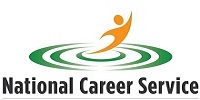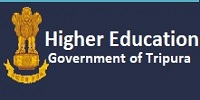


Desktop Publishing Operator(DTPO)
Desktop Publishing Operator (DTPO) is a vocational trade that focuses on using computer software to create and produce printed materials such as brochures, magazines, newspapers, and other publications. Here’s an overview of the DTPO trade:
Overview
• Duration: 1 years
• Eligibility Criteria: Candidates should have passed the 10th class from a recognized board.
• Objective: To train individuals in the use of desktop publishing software and techniques for designing and producing high-quality printed materials.
Key Learning Areas
1. Desktop Publishing Software:
• Applications: Proficiency in industry-standard desktop publishing software such as Adobe InDesign, Adobe Photoshop, Adobe Illustrator, CorelDraw etc.
• Features: Understanding and utilizing software features for layout design, typography, and image manipulation.
2. Design Principles:
• Layout: Skills in creating effective page layouts, including text placement, image alignment, and overall visual composition.
• Typography: Knowledge of typographic principles, including font selection, spacing, and alignment to enhance readability and visual appeal.
3. Graphic Design:
• Image Editing: Using graphic design tools like Adobe Photoshop and Illustrator to edit and prepare images for publication.
• Color Theory: Understanding color theory and its application in creating visually appealing and cohesive designs.
4. Production Techniques:
• Prepress: Knowledge of prepress processes including file preparation, proofing, and color management to ensure high-quality print outputs.
• Printing Methods: Understanding various printing methods (e.g., offset, digital) and how to prepare files for different types of printing processes.
5. File Management:
• Formats: Skills in managing and exporting files in different formats (e.g., PDF, TIFF) for various printing and publishing needs.
• Organization: Techniques for organizing and archiving design files and assets efficiently.
Career Opportunities
1. Publishing Houses:
• Roles: Working in publishing houses to design and produce books, magazines, and other printed materials.
2. Advertising Agencies:
• Roles: Designing marketing materials such as brochures, flyers, and advertisements for clients.
3. Corporate Design Departments:
• Roles: Creating internal and external communications materials, including newsletters, reports, and promotional materials.
4. Freelance:
• Roles: Offering desktop publishing services on a freelance basis for various clients and projects.
Conclusion
The Desktop Publishing Operator trade provides essential skills for designing and producing a wide range of printed materials. With training in software applications, design principles, and production techniques, individuals are well-prepared to work in various sectors, including publishing, advertising, and corporate communications. The growing demand for high-quality printed and digital materials ensures continued career opportunities for skilled desktop publishing professionals.






